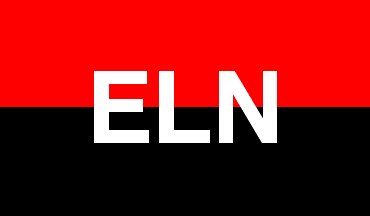Reading Two Wheels Through Terror by Glen Heggstad.
A cracking adventure story of
the author's attempt to ride his KLR 650 from his home in Palm Springs
to Tierra Del Fuego and back. I'm not yet finished, but have completed
the chapters that relate his trip from Bogota to Medellin with a side excursion through the countryside courtesy the Ejercito Liberacion
Nacional, a notorious and merciless Colombian guerilla outfit.
Heggstad has to make some tough risk assessment decisions during the
course of the ordeal. Maybe there's a lesson here, maybe not.
The Risk of Riding from Bogota to Medellin
Heggsted mentions his inability to get any reliable information on the
condition of the roads despite talking to locals and reading the papers.
He saddles up his Kawasaki, and presses on. After the pavement ends, he
is pulled over at a ELN roadblock and taken hostage.
The risk issue? Haggstad, by nature of the fact he's riding a
motorcycle through Colombia, has a healthy appetite for risk. These
risks he largely mitigates through his personal toughness, experience
and cunning. He is aware that he is riding into an area of high
frequency, high impact risk. So he gets pulled over by a couple dozen
men dressed in black carrying rifles.
Hostage as Asset
The more interesting dynamic is between hostage-takers and hostage. As a hostage taker, the hostage is your primary asset. It decreases in worth if damaged beyond repair, or if destroyed. At the same time, the hostage is at the same time your principal threat actor. Hostages will make every effort to escape your control.
As a hostage, your primary asset is the same as your adversary's - your own health and well-being. However, you are primarily focussed on changing your situation, i.e., no longer being a hostage. Heggstad seek attempts to escape, gain information, and persevere until the opportunity arises for his escape. However, it isn't until he realizes that the primary asset the ELN is willing to protect is in his control. So he sabotages his own health and effects his deliverance from his captors.
There's a privacy corollary here somewhere, where corporations, information brokers, and credit bureaus are information kidnappers, and your personal information is the hostage. You are the asset, and the healthier you are the happier the kidnappers. These institutions are not aways working in your best interest However, there isn't the "sticking a key in your nose until you bleed and enter a hunger strike and you get a mule ride to the Red Cross" sort of way out for the private individual.
I probably need to think on this more.
Friday, January 5, 2007
Hostage as Asset
Subscribe to:
Post Comments (Atom)



No comments:
Post a Comment